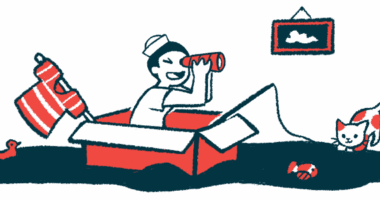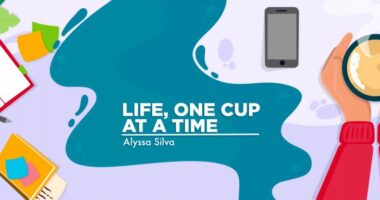I’m Hopeful We Won’t Forget What Connected Us During the Pandemic


It’s been about two years since I got a message from a friend saying that she would miss seeing me at Turnstone, the local disability center. Earlier that day, an announcement had been made that the building would be closing for an undetermined amount of time due to the COVID-19 pandemic, which we still knew little about at the time.
Optimistically, I replied to my friend and assured her that we’d see each other again soon. I told her that the closure wouldn’t last more than a few weeks. When I said it, I genuinely believed it to be true, but I don’t know that anyone could have anticipated how the following weeks, months, and years would actually unfold.
The past two years may not have gone as anyone expected, but I hope we can all still walk away from the experience with some good memories, and maybe we can even learn some things from it. Let’s take some of our experiences from this pandemic and use them to build a better, brighter future for everyone.
One thing that specifically comes to mind when I say this is the shared experience many of us now have of engaging with one another through a digital world. For the disability community, this has added a great deal of ease to everyday life and offered us new opportunities to interact and connect. And those opportunities and ease aren’t only for us. They’re available to nearly everyone!
While there are dozens of examples of this, there are two that I’d like to take a look at, focusing on the positives, and hope to see stick around for a long time to come. Those are telehealth and remote work.
Before the emergence of telehealth, I had to drive three hours for every appointment with my team of specialists at the SMA clinic at Nationwide Children’s Hospital. I typically see no fewer than five different specialists, which takes several more hours before we can go grab some food and make the trek back home. The visits are well worth it, and my pulmonologist usually has yummy restaurant recommendations. Even so, it’s a long day.
Now with telehealth as an option, my travel time has been significantly reduced. I still have a yearly visit at the actual clinic, but unless there’s a concern that needs to be addressed in person, most of my appointments are conducted from my living room. This grants me the ability to discuss my current SMA treatments, keep my doctors updated on my condition, and learn from their expertise, all without an exhausting day of travel or interruption to my normal daily activities. It also limits my exposure to any germs that could be lingering in the waiting room.
Remote work is another major change to everyday life that’s resulted from the pandemic. But I have to admit that this wasn’t actually a new concept for me. BioNews, the publisher of this site, was already almost entirely remote. We have to be because we have staff members all around the world.
Working from home can be an ideal option for people in the disability community who face difficulties getting to their workplace or require breaks during the day for rest and medical care, which is the case for many of us at BioNews.
Now, many others have found that remote work is beneficial for them, too. It often allows for a more relaxed, flexible schedule, and it can even provide the opportunity to accomplish other things around the house or spend time with family simultaneously.
It’s taken two years, but the number of COVID-19 cases in the U.S. is finally dropping. Hope for the end of the pandemic seems like more than just a glimmer on the horizon, and much of life is returning to the way it used to be.
It’s fantastic that we can safely come together in our communities again, but let’s not be too quick to cast aside the technology that we’ve been using to access the world. What we used as survival tools during hard times can now be used to build a more inclusive, connected society during good times.
And in case you’re wondering if I’ve seen my friend since the start of the pandemic, I have. Thanks to the same technology that I use to communicate with my doctors and colleagues, a group of us from Turnstone have been hanging out regularly for over a year.
Note: SMA News Today is strictly a news and information website about the disease. It does not provide medical advice, diagnosis, or treatment. This content is not intended to be a substitute for professional medical advice, diagnosis, or treatment. Always seek the advice of your physician or other qualified health provider with any questions you may have regarding a medical condition. Never disregard professional medical advice or delay in seeking it because of something you have read on this website. The opinions expressed in this column are not those of SMA News Today or its parent company, BioNews, and are intended to spark discussion about issues pertaining to spinal muscular atrophy.
The post I’m Hopeful We Won’t Forget What Connected Us During the Pandemic appeared first on SMA News Today.




